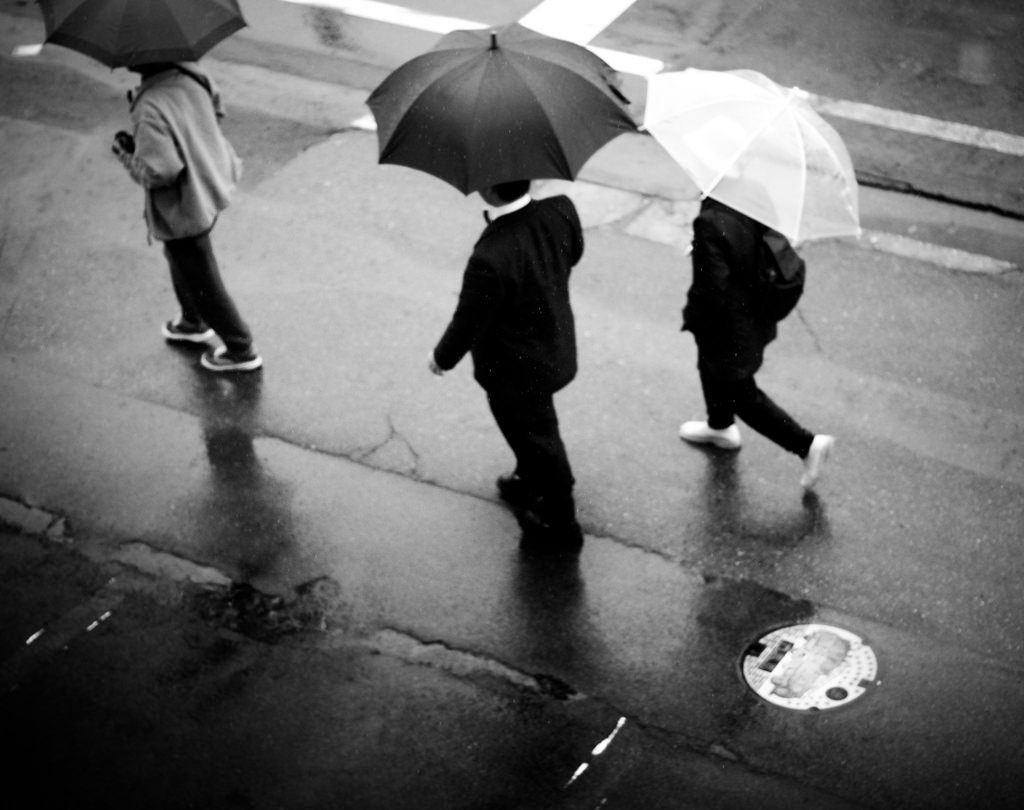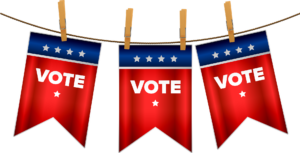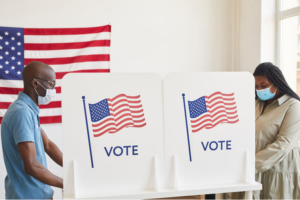Ever decide to change your entire plans for the day because of the weather? Extreme cold or hot weather or even snow can have a major impact on one’s day-to-day activities. Those activities apparently include going to vote. In the past, Election Day turnout was greatly affected by the weather, specifically rain.
In fact, one report showed that voter turnout in presidential elections dropped 1 percent with each additional inch of rain in more than 3,000 counties studied between 1948 and 2000, according to U.S. News.
Rain, especially in states that receive heavy rainfall, affects voter turnout. Take, for example, the presidential election in 2000 when George W. Bush ultimately defeated Al Gore in a recount. In Florida the rainfall had such an effect on voter turnout that it put the election in contention, the study found. According to Brad Gomez, a political science professor at Florida State University who led the study on voter turnout and weather, Gore would have won the state of Florida if not for the rain.
In 2008, the West Coast experienced a significant amount of rainfall that affected voter turnout. States like California, Utah, Oregon and Idaho were all affected by the rain, which in turn caused citizens to stay home instead of vote. The total number of voters in Oregon that year fell by more than 11,000, which decreased voter turnout in the state by 4.3 percent, according to U.S. News.
Fast forward to 2012, when every state that experienced rainfall, even less than an inch, experienced a decrease in voter turnout. States including Tennessee, Georgia and Missouri, all had a decrease in voter turnout and also had Election Day rain. Tennessee’s voting percentage dropped 5.1 percent, Georgia’s dropped 3.5 percent, and Missouri’s dropped a total of 5.4 percent.
The weather also persuades those citizens who are undecided to stay home. Being undecided on your choices in an election can be difficult, but adding bad weather in the mix can cause a person to reconsider voting altogether.
According to a Weather Channel survey in 2012, bad weather is what convinces many undecided voters not to participate. “Among those who plan to vote and know which candidate they’ll vote for, 19 percent say bad weather will impact whether they make it to the polls, vs. 35 percent of undecided voters,” the survey found.
For Tuesday’s midterm election, the National Weather Service is predicting an increase in the chance of rain in Atlanta, Washington, D.C., New York, Chicago, Minneapolis, New Orleans and Cincinnati.
While rain may dampen Election Day enthusiasm in those areas, weather has become less of a factor in determining voter turnout in recent years, thanks to developments like early voting and mail-in ballots. Half of those areas where rain is forecast Tuesday have adopted early voting. In 2016, Princeton University Professor Thomas Fujiwara told the Washington Post’s Capital Weather Gang, “We actually find that the effect of rain on turnout has been getting weaker in recent years, and it might even be zero now. There are many potential reasons for this, early voting and mail voting being the most likely candidates.”
So while Tuesday’s forecast once might have had a major impact on election results, truth be told, that seems to be less of a factor now. And considering how deeply divided the country is, weather will likely be the least of people’s concerns.


